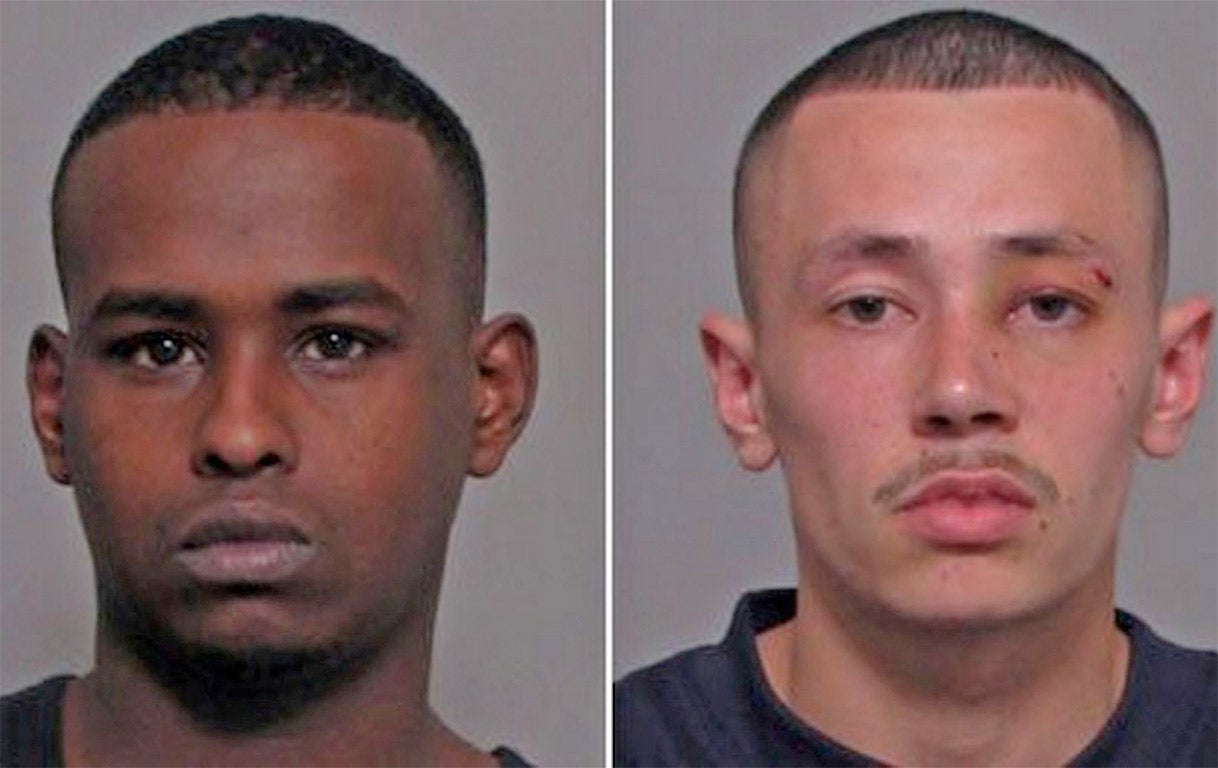Drug dealer launches appeal against 'joint enterprise' murder conviction
Ameen Jogee was jailed for a minimum of 20 years under the controversial legal doctrine

A drug dealer serving a life sentence after egging on a friend to murder has launched a court challenge to the controversial legal doctrine that campaigners say is responsible for unfairly jailing more than 600 people.
Ameen Jogee, was jailed for a minimum of 20 years in 2012 for the killing of Paul Fyfe, 47, a former policeman, even though he did not inflict the fatal blow or go into the house where the murder was committed.
He stood on the threshold of the house in Leicester brandishing a brandy bottle but it was his friend, Mohammed Hirsi, who stabbed the ex-policeman with a kitchen knife.
Hirsi was given a minimum 22-year term.
Jogee’s appeal in London centres around the use of the doctrine of joint enterprise, which allows several people to be charged with the same offence, even though they may have played very different roles.
MPs last year said that they were concerned that “minor players” had been convicted of murder and called for a review of the law.
Campaigners say that a high proportion of those convicted under joint enterprise are from black or minority ethnic groups. The doctrine has been used as an effective prosecution tool in cases involving gang members.
The Supreme Court will examine whether Jogee thought it probable, rather than just possible, that Hirsi would have used the knife against the former policeman after a night of drinking and taking cocaine.
The hearing could result in the conviction being quashed and a retrial.
“We don’t have a problem with joint enterprise if it’s applied correctly,” said Janet Cunliffe, of the campaigning group Joint Enterprise Not Guilty by Association (JENGbA). “If a man pays money to another man to kill his wife, they are equally culpable. But it’s being applied to the friend who doesn’t know the killer will lay a finger on the victim.”
The two men, both in their 20s, were sentenced for the murder of Fyfe at the home of his girlfriend, Naomi Reid, on the Rowlatts Hill estate in Leicester.
The trial heard that Fyfe, who worked as a paralegal, had represented both of the killers as well as Ms Reid’s partner when he was sentenced for a long jail term for drugs offences.
Fyfe was killed on the third time that the pair went to Ms Reid’s house in June 2011. On the first occasion, Jogee and his friend went into the house on the pretext of sharing drugs with Ms Reid and the pair boasted about taking out Fyfe.
Jogee waved a knife around inside the house and said that the pair should go and stab another man that they knew. Ms Reid asked the pair to leave but they returned twice.
The principle of joint enterprise is the lazy prosecutor’s dream
On the last occasion, Jogee smashed up a car outside the house after 2am but did not go in.
Ms Reid said that Ameen was then “egging” on Hirsi “to do something to Paul”, according to the judge’s summing up of the case. Hirsi then stabbed Fyfe in the chest.
The pair were convicted of murder in March 2012 and were jailed for life. Jogee’s minimum term was later cut to 18 years by the Court of Appeal.
A lawyer who specialises in criminal cases says a review of law and practice relating to joint enterprise is long overdue.
“The principle of joint enterprise is the lazy prosecutor’s dream.
“The doctrine results in the occasional triumph, such as the conviction of Stephen Lawrence’s killers, but these are far outweighed by its disproportionate application to groups such as young people, particularly black young men,” said Sandra Paul, who works for law firm Kingsley Napley.
